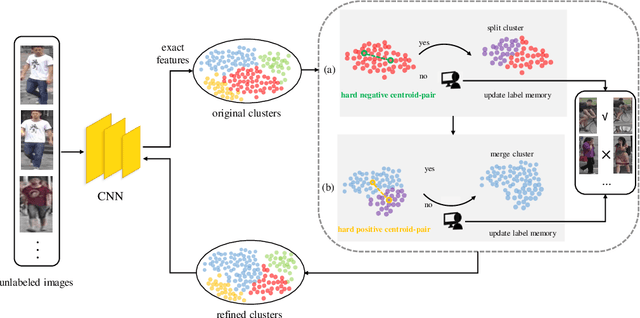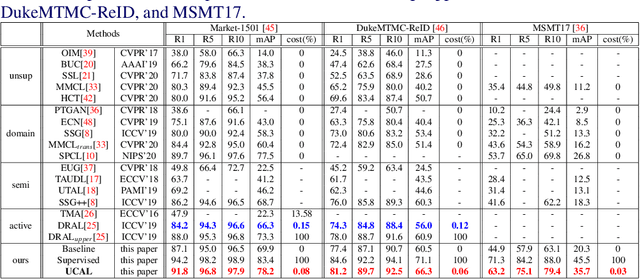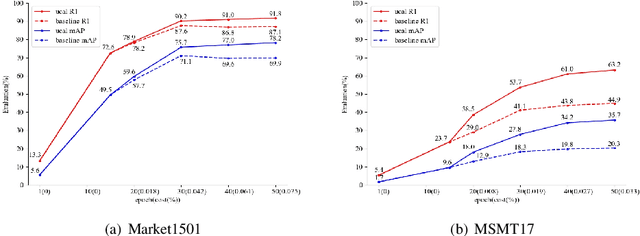Unsupervised Clustering Active Learning for Person Re-identification
Paper and Code
Dec 26, 2021



Supervised person re-identification (re-id) approaches require a large amount of pairwise manual labeled data, which is not applicable in most real-world scenarios for re-id deployment. On the other hand, unsupervised re-id methods rely on unlabeled data to train models but performs poorly compared with supervised re-id methods. In this work, we aim to combine unsupervised re-id learning with a small number of human annotations to achieve a competitive performance. Towards this goal, we present a Unsupervised Clustering Active Learning (UCAL) re-id deep learning approach. It is capable of incrementally discovering the representative centroid-pairs and requiring human annotate them. These few labeled representative pairwise data can improve the unsupervised representation learning model with other large amounts of unlabeled data. More importantly, because the representative centroid-pairs are selected for annotation, UCAL can work with very low-cost human effort. Extensive experiments demonstrate the superiority of the proposed model over state-of-the-art active learning methods on three re-id benchmark datasets.
 Add to Chrome
Add to Chrome Add to Firefox
Add to Firefox Add to Edge
Add to Edge